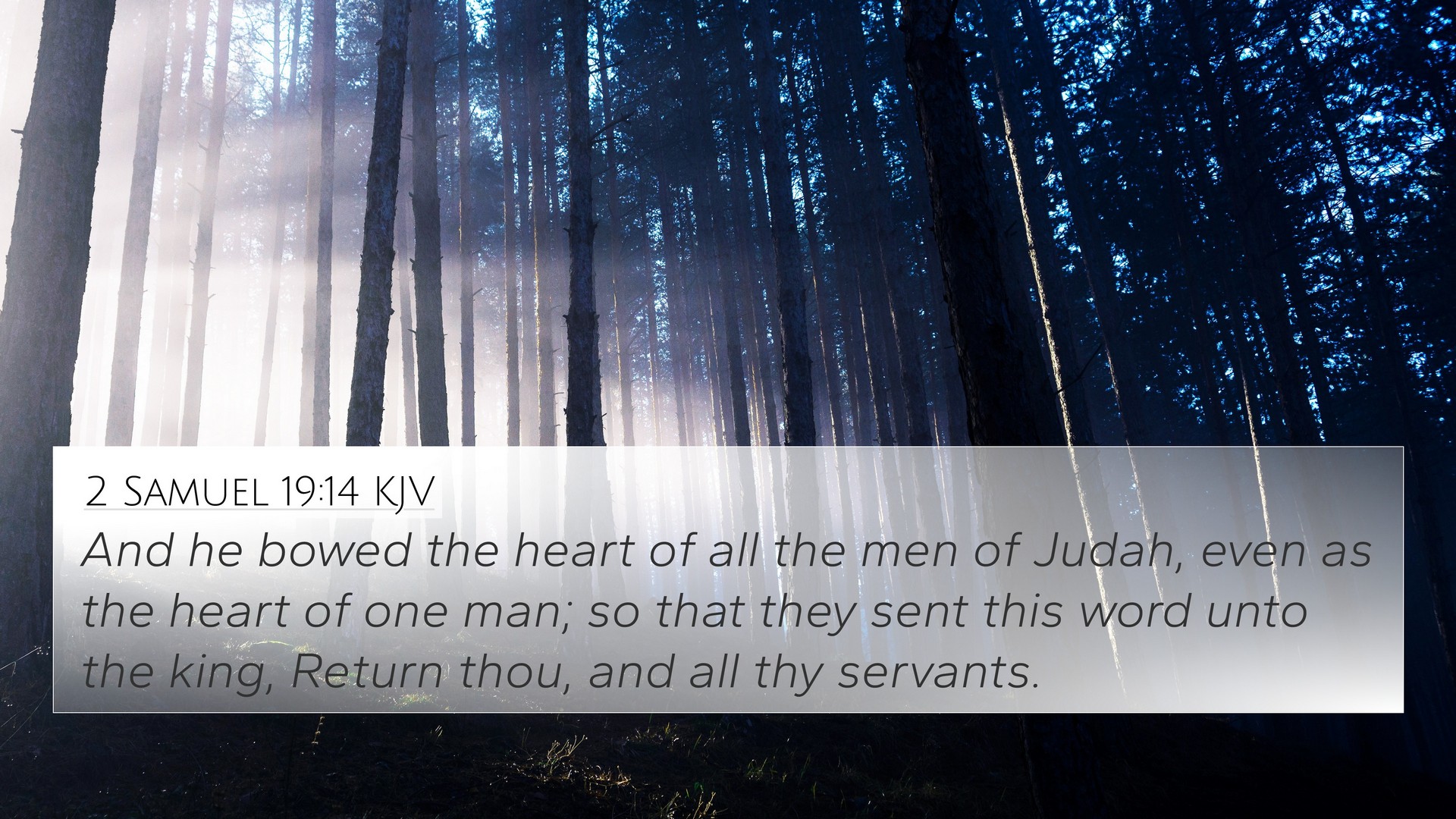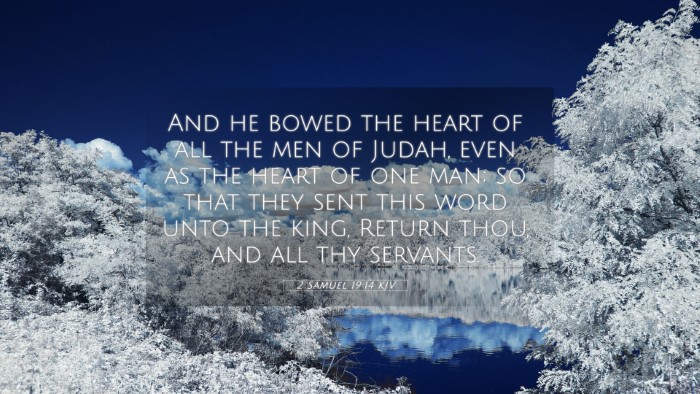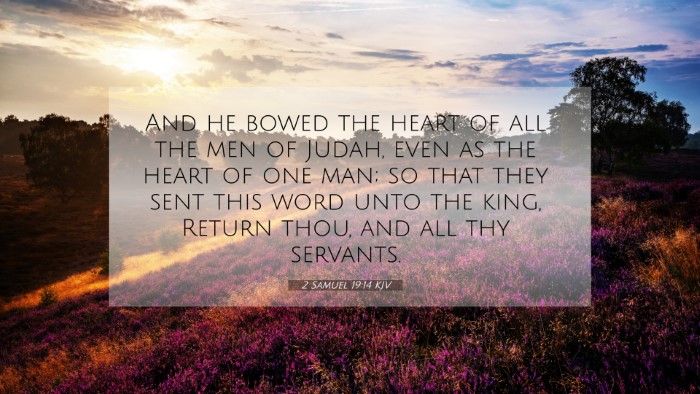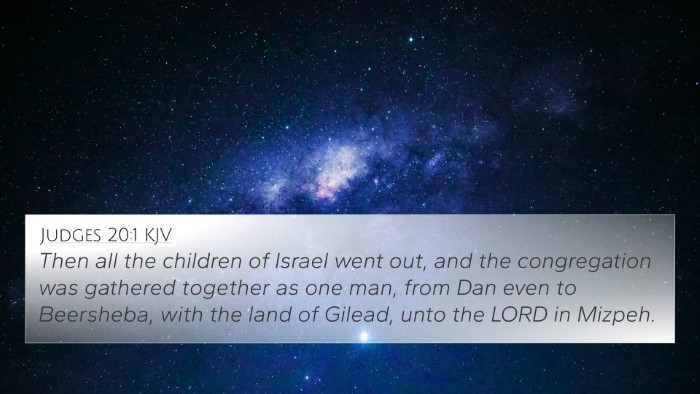Understanding 2 Samuel 19:14
Verse: "And he swayed the heart of all the men of Judah, even as the heart of one man; so that they sent this word unto the king, Return thou, and all thy servants."
This verse represents a pivotal moment in the narrative of David's reign as king. It captures the reconciliation of David with the tribe of Judah after his son Absalom's rebellion. The passage illustrates both the leadership qualities of David and the unified response of the people.
Context and Significance
The context of this verse takes place after the tumultuous events of Absalom's insurrection, where David was forced to flee Jerusalem. Upon Absalom's death, David yearns to return to his throne, and this verse highlights how the men of Judah, following their leader's appeal, are united in their desire to bring David back.
Commentary Insights
-
Matthew Henry's Commentary:
Henry notes that David's ability to sway the hearts of the men of Judah reflects his genuine leadership and tact. It emphasizes the importance of unity in leadership and the fragility of human loyalty in turbulent times.
-
Albert Barnes' Notes:
Barnes suggests that the power of persuasion is vital in governance. The phrase "even as the heart of one man" denotes complete alignment and harmony among the people, demonstrating the effectiveness of David’s strategy in fostering loyalty.
-
Adam Clarke's Commentary:
Clarke remarks on the implications of the hearts swayed, indicating that a leader’s return must resonate with the people’s desires. He compares this situation to former instances in the Bible where leaders united their tribes under adverse circumstances.
Key Themes
- Leadership and Influence: The verse serves as a case study on effective leadership—David moved the hearts of his people through empathy and strategic communication.
- Unity Among People: This expression of unity among the men of Judah highlights the power of collective will and decision-making.
- Forgiveness and Reconciliation: David's return is a symbol of healing after conflict, emphasizing themes of forgiveness in interpersonal relationships.
- Divine Sovereignty: The alignment of the hearts with David also suggests a divine orchestration in restoring his kingship, reinforcing the belief in God's guidance over leaders.
Connections with Other Bible Verses
This verse resonates with several other passages in the Bible that emphasize similar themes of leadership, unity, reconciliation, and the importance of community support. Here are some cross-references:
- 1 Samuel 15:30: This reflects the theme of loyalty and the dynamics of leadership when King Saul faced rejection.
- 2 Samuel 5:1-3: This passage illustrates the anointing of David as king over all Israel, indicating a collective desire for unity.
- Psalms 78:70-72: This relates to David's leadership qualities, painting a picture of caregiving and integrity in guiding his people.
- Philippians 2:2: Expresses the unity of spirit among the believers, paralleling the sentiment found in 2 Samuel 19:14.
- 1 Peter 5:3: Discusses the responsibilities of leadership, resonating with David's influence on his followers.
- Acts 15:25-26: The unity shown by the apostles reflects the same camaraderie described among Judah's men.
- Matthew 18:19-20: Highlighting the power of agreement in community prayer parallels the collective decision in this verse.
- James 5:16: Highlights confession of sins and praying for one another, tying into themes of reconciliation and community support.
Conclusion
In summary, 2 Samuel 19:14 serves as a rich text for exploring the depth of biblical themes such as leadership, unity, and reconciliation. With insights from prominent biblical scholars, we understand this verse as not only a historical recounting but also a timeless lesson applicable to modern readers navigating the complexities of leadership and community interaction. For those interested in further study, the verse's connections with other scriptures can serve as a valuable resource in exploring these themes more deeply.





